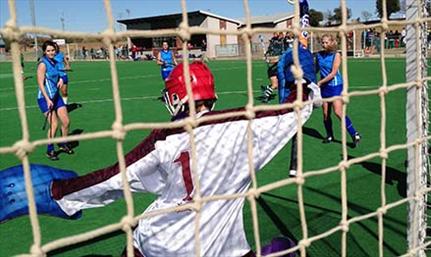|
 |
Photo: RooistoelTv
10 August 2013 |
Photo Gallery
The recent intervarsity between the University of the Free State (UFS) and the North-West University was a huge success. This 70th celebration of intervarsity between the two institutions, which took place for the first time in 1927, is the oldest event of its kind in South Africa.
According to Rudi Buys, Dean of Student Affairs at the UFS, it is also the most comprehensive and most innovative intervarsity in the country and since 2010 includes all incorporated campuses of universities such as the University of the North. The focus is no longer on sports only, but also on cultural programmes and forums for discussion between student leaders.
Of the 32 sport and culture activities intervarsities between the UFS and the NWU, the UFS won 16, the NWU 13 and three ended in a tie.
Sports and cultural activities like debate were held across the Bloemfontein Campus. Record numbers of supporters attended the different matches, debating competitions and festivities. The first SRC Presidents’ Reunion that took place during the intervarsity is regarded as a special milestone in the history of the UFS.
“We are particularly satisfied that students of diverse backgrounds and campuses took part in and attended intervarsity events and in this way showcased the rich variety of Kovsies with great pride,” Buys said.
“The successful course of the intervarsity confirms that it is important for the UFS to maintain its proud history of almost 100 years with the NWU, but to also update in order to reflect our young democracy and in pace with a young generation of South Africans who are now our students,” Buys concluded.